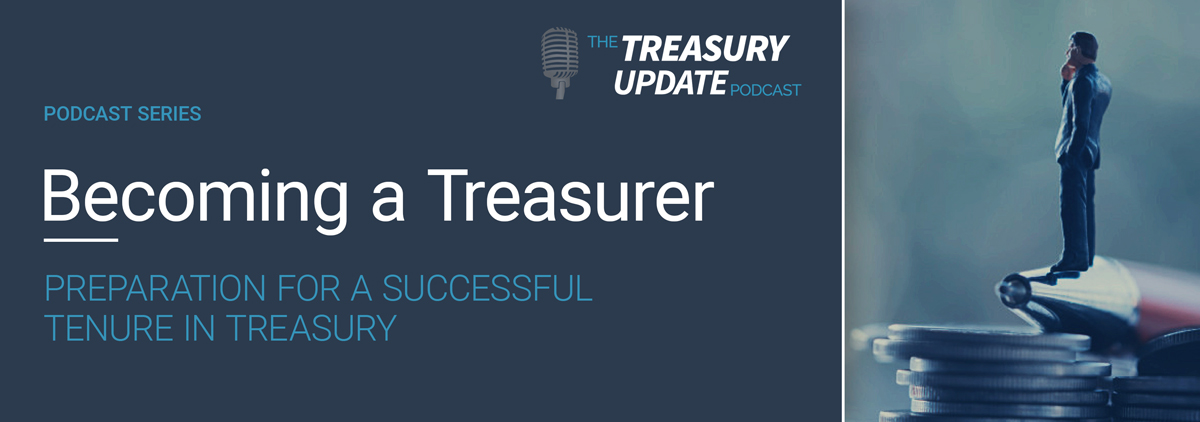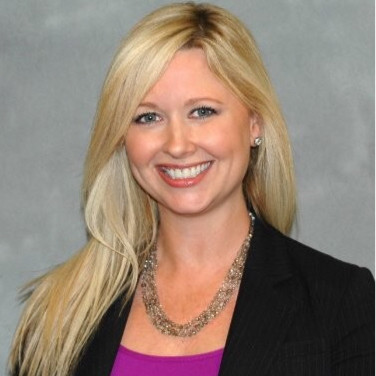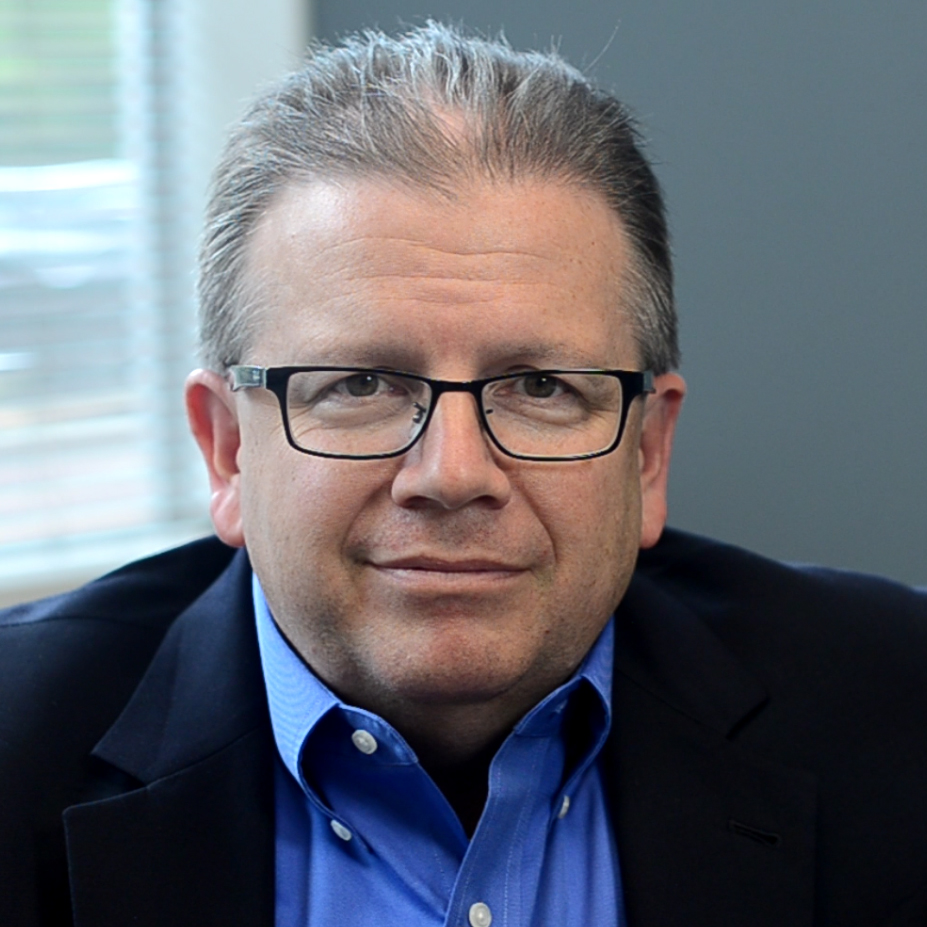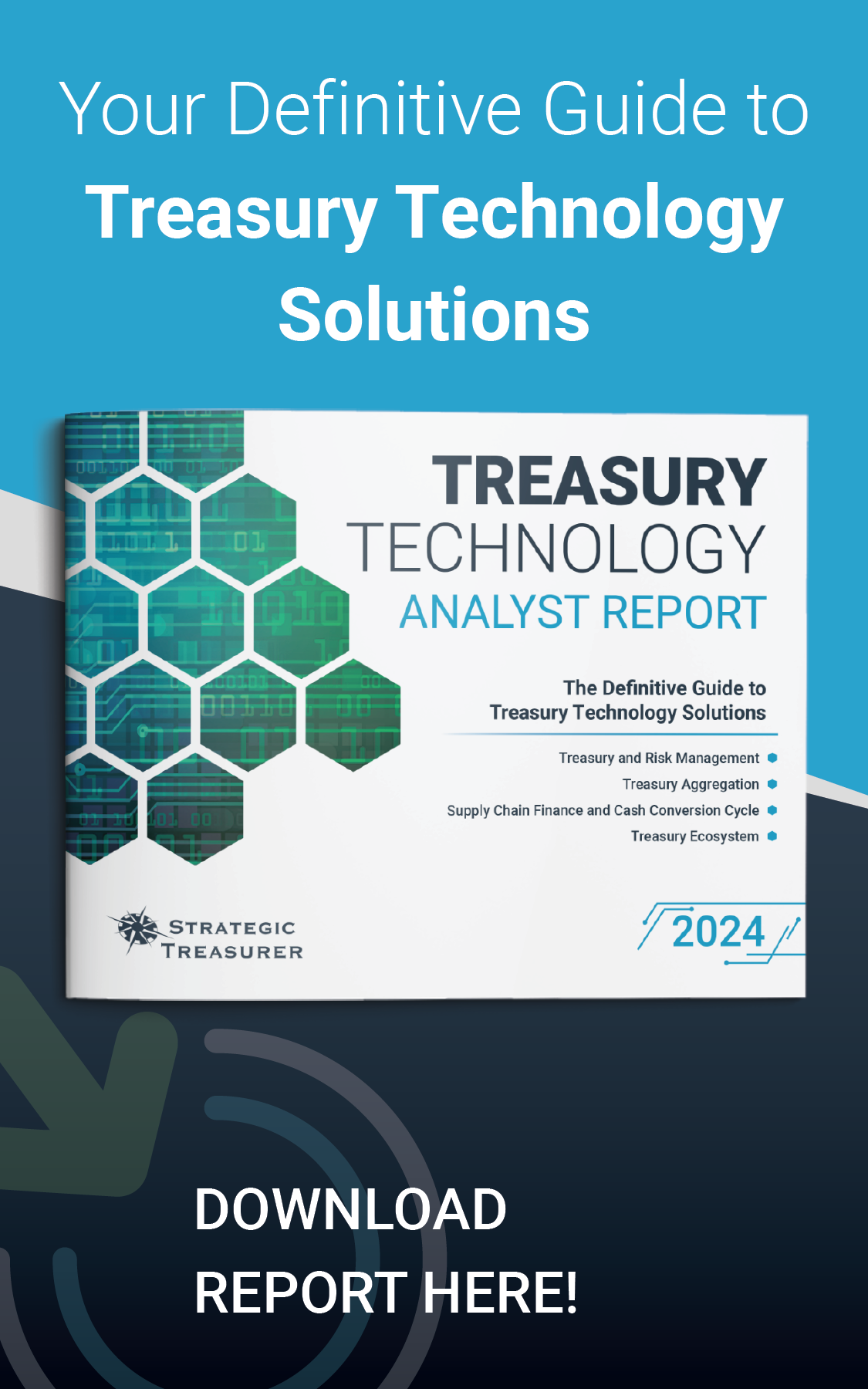
Episode 134
Becoming a Treasurer: Part 16 – Learning from Literature: The Not-To-Do List and the To-Do List
On this episode of the Becoming a Treasurer series, Craig Jeffery continues the Learning from Literature sub-series, this week showcasing Robert Frost’s poem “The Road Not Taken.” This illustration covers the opportunistic situations treasurers can take advantage of, as well as intentional directions with a view to career choices and approaches to life and tasks. Listen in on how to make choices that lead you to the road of success.
Host:
Meredith Zonsius, Strategic Treasurer


Speaker:
Craig Jeffery, Strategic Treasurer


Episode Transcription - Episode 134 - Becoming a Treasurer: Part 16
Meredith Zonsius :
Welcome to The Treasury Update podcast presented by Strategic Treasurer, your source for interesting treasury news, analysis, and insights in your car, at the gym, or wherever you decide to tune in.
Meredith Zonsius :
On this episode of the Becoming a Treasurer series, Craig Jeffery continues the learning from literature sub series showcasing Robert Frost’s poem The Road Not Taken. This illustration covers the opportunistic situations treasurers can take advantage of, as well as intentional directions with a view to career choices and approaches to life and tasks. Listen in on how to make choices that lead you to the road of success.
Meredith Zonsius :
Welcome back to the podcast, Craig.
Craig Jeffery:
Thanks Meredith. It’s good to be here.
Meredith Zonsius :
Today we’ve reached our six learning from literature episode within the Becoming a Treasurer series. What piece of literature are we covering today?
Craig Jeffery:
We’ll be looking at Robert Frost’s poem The Road Not Taken, so written about 150, 160 years ago. Most people will be familiar with this poem.
Meredith Zonsius:
What can we learn from this poem?
Craig Jeffery:
Well, I think mostly it’s about self-reflection on what you do, but I think there’s some examples we could extract from that about the not to-do list and the to-do list for the treasurer, for the treasurer professional, so where do you focus your time on, and then making choices on what to pursue and what not to pursue and recognizing that there you do have capacity issues. So those choices need to be made.
Meredith Zonsius:
Yeah. That’s an excellent tie-in. What about career choices?
Craig Jeffery:
I think that’s probably the most common application people would have from this poem. Do you take a more common path that’s more traditional or do you take one that’s more customized to you and your interests? And I think as people reflect on their careers, and in treasury as a particular area of taking these opportunistic situations and moving into treasury and finding they like that is, tends to be a common theme, though the paths are very, very different. You find opportunities. You might want to take advantage of them as they may not come around. But there’s also an aspect of being intentional about what you like and which way you go.
Craig Jeffery:
I know there’s a lot about that, but in terms of career, what energizes you? Do you like lots of new learning, a little bit of new learning, staying up with cool technology? Do you like a balance, consistency in what you’re going to do and making ongoing improvements to staff, to people, to use of capital? Are you big on training and developing others? Are you a deal person? You really get energized by making deals that are great for your organization or leveraging good, new tech to drive better processes and analysis.
Craig Jeffery:
So just knowing yourself I think helps when you’re confronted with career choices, tasks, choices, jobs to do.
Meredith Zonsius :
How about approaches to life and tasks?
Craig Jeffery:
I’m not sure everybody wants to tune in to hear me give advice on that. But, this idea of life and tasks, there’s … As you read through the poem, he talks about you can’t always go back to the same spot. And that’s true. You have one life. As you make choices, you’re making decisions on what to do and what not to do.
Craig Jeffery:
You might find I’m really interested in these six things. Well, you can’t do all six things. You might have capacity to do one or two or to follow this in your career for a period of time and something else, or maybe this is something you do in a hobby or with volunteer work and this is something you do for work. So it’s, you have to make sure you’re making choices and recognize that that’s limited resources, your time, and how much you can do.
Meredith Zonsius :
And everybody makes decisions differently. Can you share and dissect the poem for us?
Craig Jeffery:
Yeah. Maybe I’ll read it and then talk through some of it. So for those that have memorized it, you guys might want to fast forward a little bit.
Meredith Zonsius :
I haven’t memorized it.
Craig Jeffery:
I think everyone knows parts of it without memorizing it. I haven’t memorized it either, but it certainly comes to mind to a lot of people.
Craig Jeffery:
It says: Two roads diverged in a yellow wood, and sorry I could not travel both and be one traveler. Long I stood and looked down one as far as I could to where it bent in the undergrowth. Then took the other, as just as fair, and having perhaps the better claim, because it was grassy and wanted wear. Though as for that the passing there had worn them really about the same. And both that morning equally lay in leaves no step had trodden black. Oh, I kept the first for another day! Yet knowing how way leads on to way, I doubted if I should ever come back. I shall be telling this with a sigh. Somewhere ages and ages hence: Two roads diverged in a wood, and I, I took the one less traveled by, and that has made all the difference.
Craig Jeffery:
Yeah, I think one part here is he wanted to do both. He wanted to take both paths. He had to make a choice. You look down as far as you could. You can’t do it. You’re one traveler. You can always wonder he chose a path. Why he chose a path as opposed to cutting through an unmarked trail would be some text that could be used for another poem. But here were two paths that were set before him. And he made the choice to go down one of those. And he liked the one that was less traveled. I think he thought there would be better traction for that. And whether that’s there’s more opportunity for the company or for you cutting your mental teeth on a new program or a new plan, he made that choice.
Craig Jeffery:
I liked a couple things that he says there too. And after he got through the part about the, both of them looked pretty good. Then he took the other, as just as fair. And he thought it might have better traction, better claim he says, because it was grassy and wanted wear, like it was calling and beckoning to him to travel that. But, as he got there, he’s like, “Hey, they’re really perhaps about the same.”
Craig Jeffery:
But it was, the end part of the fourth, I’ll call it paragraph or stanza, it says: “Yet knowing how way leads on to way, I doubted if I should ever come back.” And that’s really important when you’re making decisions. You don’t need to go, get all tied up about things. But when you make decisions about positions or tasks or jobs, or which will occupy your time with at work, your time apart from work, the priorities you give, time advances. You don‘t get to do over. So be wise and thoughtful about what you’re doing, be intentional. Do you really want to bury it all and binge watching some show, which like, this is not good, but I’m committed to these 40 minute segments and watching all 80 shows. So I think that’s a good thing for life, but it’s also good and effective for work.
Craig Jeffery:
The last set of lines in the poem. “I shall be telling this with a sigh.” And I … I don’t know. I’m not an English major or literature major and I don’t know if that sight is a sigh of contentment, relief, or just sound reflection. I guess it could be all, but it seems to me like he’s reflecting well. Later on, “Ages and ages hence they diverge, and I, I took the one less traveled by, and that has made all the difference.”
Craig Jeffery:
I’m going to go with that. It made all the difference in a positive way-
Meredith Zonsius :
Yeah, I agree-
Craig Jeffery:
… because that’s what he wanted. I also think some people want something that’s more consistent. They want 5% new, 95% stable. And so they may want a path that’s more consistent and that might be right for them. But I think many, many treasury people, many treasury professionals are looking to stretch minds in a number of ways and their skills, their ability to deal with people, technical aspects, financially technical, system technical, other areas to grow and expand. And those types of choices will make all the difference to their careers and what they do for their organizations.
Meredith Zonsius :
That’s very insightful. Can you break down the learning process for us? How do we exactly apply this to treasury?
Craig Jeffery:
I think that it’s kind of what you and I already talked about a little bit, that it’s, you have limited time, you have choices. You really want to know what you’re interested in. So this could be, I’m interested in these three things. Well, I need to earn money to provide for my family. Oh that means I needed to do this. I like it. I like it a lot. I have interest in these other areas. Am I really giving up on them? Well, maybe it becomes a hobby or a volunteer activity that you use to balance those out. But I think it’s really knowing what you want to do and looking down the path as far as you can, and making those choices, and being happy with it, as opposed to just keep revisiting, “I could have taken that path or that path.” I don’t think that’s … all that second guessing is supremely helpful, but being thoughtful upfront is I think probably the best we can do.
Meredith Zonsius :
Excellent. Do you have any final thoughts?
Craig Jeffery:
I was thinking this is a great poem. There’s stuff we can learn from it. And I’m just thinking that I’m hoping we’re not stretching this learning from literature too far with this particular Robert Frost poem, but we’re trying to take a simple nugget and then apply it to treasury or to life. So, thanks. Thanks for asking those questions. And I hope I didn’t stretch this too thin that it would break.
Meredith Zonsius :
No. I enjoyed it. Thanks so much, Craig.
OUTRO:
You’ve reached the end of another episode of The Treasury Update podcast. Be sure to follow Strategic Treasurer on LinkedIn. Just search for strategic treasurer.
OUTRO:
This podcast is provided for informational purposes only, and statements made by Strategic Treasurer LLC on this podcast are not intended as legal, business, consulting, or tax advice. For more information visit and bookmark strategictreasurer.com.
Related Resources
#TreasuryFAQ – YouTube Playlist
Check out our YouTube playlist covering many frequently asked questions in treasury!
Becoming a Treasurer – A Treasury Update Podcast Series
This series within The Treasury Update Podcast explores questions around being a successful treasurer. Topics discussed include preparation, what needs to be measured, effective communication, development of a team, and acquirement of resources needed.



